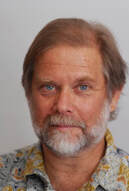Making Meditative Soup to Warm Up Your Fall: Sharing our recipes for Self-Care in the darker months10/28/2019 By Peggy Gillespie, IPV Teacher
Fall is here. It gets dark earlier, gardens have been touched with frost, and it's time for many of us to hunker down and figure out ways to stay physically, emotionally, and spiritually warm-hearted despite the coming of the snow and ice outside. I will share some of my recipes for living well in the New England wintertime—meditation practices that can lead to self-care and self-nourishment. I hope you'll bring some of your practices as well (and bring some copies of your favorite soup recipes, too, to share with our community). Together, we can create a very yummy evening and take the leftovers to "eat and digest" at home. Join Peggy to sit together with other sangha members in a relaxed atmosphere on Wednesday, November 6, 7:00pm.
0 Comments
by David Loy, visiting teacher Does Buddhism offer any special perspective on the ecological crisis? The climate emergency is not something the Buddha talked about, but his teachings have important implications for how to understand and respond to the greatest challenge that humanity has ever faced. There are profound parallels between our usual individual predicament, according to Buddhism, and the present situation of human civilization. This suggests that the eco-crisis is as much a spiritual challenge as a technological and economic one. Does this mean that there is also a parallel between the two solutions? Does the Buddhist response to our personal predicament also point the way to resolving our collective one? Join visiting teacher David Loy for a dharma talk and fundraiser for IPV on Thursday, November 14, 6:30 - 8:30pm. (6:30 refreshments / 7:00 program) plus music by Robert A. Jonas playing the shakuhachi all are welcome ~ no registration necessary
by Mark Hart, IPV teacher Our culture places a lot of value on mental acuity and on conceptual learning and knowledge. Most of our work involves extensive planning and concern about the future. It is no wonder that when people meditate, the conceptual mind often keeps running. In meditation, the instruction is often simply to notice thoughts as they arise and then return to the breath or some other focus point. While this does indeed usually settle the mind at least somewhat, and over time gets us to notice and to dis-identify more from thoughts, meditators may find thoughts still dominate. In this retreat I'd like to introduce some other techniques for stepping out of the conceptual mind that I have found useful in my practice. Some focus on moving energy and will sound more like Taoist teachings than Buddhist -- though in fact I discovered them for myself; some come from non-dual traditions. I will probably also talk a bit about the process of coming to trust non-conceptual intelligence more than Planning Mind, what I sometimes refer to as "falling out of love with thinking." Come with a willingness to experiment and play with what I present.
by Jean Esther, IPV Guiding Teacher Council Member So often we come to Buddhist practice looking for relief from pain, particularly when it’s emotional. Paradoxically our meditation practice leads us to opening to ‘what is’. Not uncommonly, what can surface in meditation is the unresolved pain in our hearts.
Whether new or experienced in meditation please join Jean for this evening of exploration. Wednesday, October 23, sitting at 7:00pm and talk at 7:35pm. |
AuthorsBlog posts are written by various IPV and guest teachers. Biographies can be found on the Teachers page. Archives
July 2020
Categories
All
|

 RSS Feed
RSS Feed